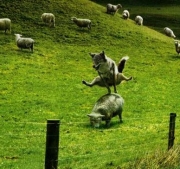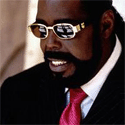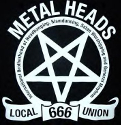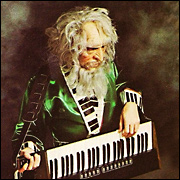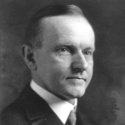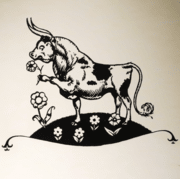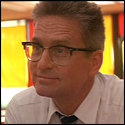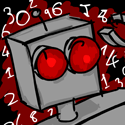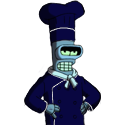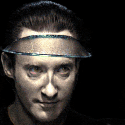|
loving Cancer, taking the prolific ones and leaving the R R Martins of the world unscathed to sit around eating pizza and watching NFL For great British sci-fi you cant go wrong with John Brunner, his stuff covers a wide spectrum from proto cyberpunk to Culture/SC type meddling with primitive civilisations. http://en.wikipedia.org/wiki/John_Brunner_(novelist) His stuff is hard to find in print though. (edit: bar the classics, stand on zanzibar/shockwave rider/sheep look up/jagged orbit) echomadman fucked around with this message at 00:50 on Apr 7, 2013 |
|
|
|

|
| # ? May 10, 2024 21:43 |
|
Glen Cook's The Dragon Never Sleeps came out in 1988, just a year after Consider Phlebas and two years before Use of Weapons, yet if it had come out in 1998, I would be here saying it owes an immense debt to Banks' Culture universe in general and Use of Weapons in particular. It's a wide screen space opera with strange AI ships, an immense human civilization whose decadent core is surrounded by a surprisingly ferocious military, and centers on the question of whether that military's actions, and therefore the actions of those who fight for and against it, are ethical. Glen Cook's politics are more conventional than Banks, and the civilization he depicts is a nasty corporate oligarchy (intentionally) instead of a communitarian utopia, but I think it will appeal to anyone who likes Banks' Culture series. Unfortunately, the publisher went out of business (or something like that) on the eve of publication and the book vanished without a trace for two decades until its recent reprint by Night Shade, and Cook remains known today mainly for the totally different (and in my opinion not nearly as interesting, at least not any more) Black Company series.
|
|
|
echomadman posted:loving Cancer, taking the prolific ones and leaving the R R Martins of the world unscathed to sit around eating pizza and watching NFL Agreed, Stand on Zanzibar is excellent, and I really must track down more of his stuff. I work in a used bookstore, so out of print isn't as big a hurdle as you'd expect  E: Glen Cook added to the list also, thanks. Edit edit: Found The Sheep Look Up on the shelves, no Shockwave Rider, surprisingly. Anything else you'd recommend, we apparently have a shelf full of Brunner... Wolfechu fucked around with this message at 03:38 on Apr 7, 2013 |
|
|
|
|
Lex Talionis posted:Glen Cook's The Dragon Never Sleeps came out in 1988, just a year after Consider Phlebas and two years before Use of Weapons, yet if it had come out in 1998, I would be here saying it owes an immense debt to Banks' Culture universe in general and Use of Weapons in particular. It's a wide screen space opera with strange AI ships, an immense human civilization whose decadent core is surrounded by a surprisingly ferocious military, and centers on the question of whether that military's actions, and therefore the actions of those who fight for and against it, are ethical. Seems like printing The Dragon Never Sleeps may be a publisher-killer 
|
|
|
|
Wolfechu posted:At the risk of sounding crass, can any of guys recommended any authors in a similar vein to Iain M Banks, scifi wise? Read a fair bit of Alistair Reynolds, Peter F Hamilton, Charles Stross, Richard Morgan. Keep trying to get into Ken MacLeod's books, but seem to get distracted. Anyone obvious I'm missing? The Jean le Flambeur stuff by Hannu Rajaniemi has been really good. A lot more abstract than Banks and less infodumps and stuff but still really engaging and interesting worldbuilding.
|
|
|
|
BastardySkull posted:The Jean le Flambeur stuff by Hannu Rajaniemi has been really good. A lot more abstract than Banks and less infodumps and stuff but still really engaging and interesting worldbuilding. Agreed, the oubliette is a fantastic setting. I've read that he patterned it after paris and that's exactly the feel that I got from it.
|
|
|
|
Wolfechu posted:Agreed, Stand on Zanzibar is excellent, and I really must track down more of his stuff. I work in a used bookstore, so out of print isn't as big a hurdle as you'd expect I've read everything I could get my hands on and never been disappointed, most are good, some are great. The Sheep Look Up is one of my favourites, Brunner had a really good knack for realistic dystopias, but still with that 60s/70s feel to them. As I said in my last post he's the closest thing to Philip K. Dick in British sci-fi in my opinion without being derivative or samey. The Zarathustra Refugee Planets are the most space based ones I remember, kind of a diaspora of humanity, with varying levels of civilisation/technology. like Le Guins Hainish Cycle or Hyperion or the Foundation books, with some SC type plotlines involving advanced observers of primitive planets The Squares of the City is good too, it has a Rum Diaries/Mievilles City & the City feel to it, not very scifi, maybe more equivalent to non-M Banks books.
|
|
|
|
No living sci fi author comes close because the rest of them are obsessed with writing nerdy po-faced series' that are more an exercise in tedious world-building rather than good, stand-alone stories with genuinely progressive ideas and characters that would work in any context. Banks is in a bracket all of his own. This is pretty much the death of non-embarrassing sci fi.
|
|
|
|
I am OK posted:No living sci fi author comes close because the rest of them are obsessed with writing nerdy po-faced series' that are more an exercise in tedious world-building rather than good, stand-alone stories with genuinely progressive ideas and characters that would work in any context. Banks is in a bracket all of his own. This is pretty much the death of non-embarrassing sci fi. I agree with your sentiments about banks and science fiction as a genre on the whole but he isn't the only person writing it well.
|
|
|
|
I am OK posted:No living sci fi author comes close because the rest of them are obsessed with writing nerdy po-faced series' that are more an exercise in tedious world-building rather than good, stand-alone stories with genuinely progressive ideas and characters that would work in any context. Banks is in a bracket all of his own. This is pretty much the death of non-embarrassing sci fi. Charles Stross vacillates back and forth between embarassing and near-Banks-level awesome. China Mieville is great, if you consider him sci-fi. And that guy that did Altered Carbon. But yeah that's about it 
|
|
|
|
WeAreTheRomans posted:Charles Stross vacillates back and forth between embarassing and near-Banks-level awesome. China Mieville is great, if you consider him sci-fi. And that guy that did Altered Carbon. But yeah that's about it Definitely not true (and definitely tilted heavily male - not your fault, but for some reason the men in the field seem to get a lot more exposure). There is a lot of really excellent talent out there right now, though a lot of it pops up more often in short form than long form. In terms of long form authors, CJ Cherryh is still alive and Connie Willis is producing, though I haven't read her more recent work. Alastair Reynolds, when he's good, is arguably a more interesting author than Charles Stross. In short fiction Ted Chiang is a marvel.
|
|
|
|
I choose to believe that Banks isn't sick, he's just trying to force the Culture to reveal itself by healing him.
|
|
|
|
Pope Guilty posted:I choose to believe that Banks isn't sick, he's just trying to force the Culture to reveal itself by healing him. I admit when I heard the news I thought "now would be a really good time for a superintelligent space computer to show up and start fixing this dumb planet".
|
|
|
|
Well... that news ruined my day. 
|
|
|
|
There is not enough profanity to adequately express how I feel about this. Is there a word for sad anger?Lex Talionis posted:Glen Cook's The Dragon Never Sleeps came out in 1988, just a year after Consider Phlebas and two years before Use of Weapons, yet if it had come out in 1998, I would be here saying it owes an immense debt to Banks' Culture universe in general and Use of Weapons in particular. It's a wide screen space opera with strange AI ships, an immense human civilization whose decadent core is surrounded by a surprisingly ferocious military, and centers on the question of whether that military's actions, and therefore the actions of those who fight for and against it, are ethical. I've actually been reading through Black Company on the recommendation of a friend after I complained about the pacing in Game of Thrones #1 (whatever it's called - I don't care) and basically said I'd given up on the series. I like it and it's a fun read, but his writing is getting stale, which is a little frustrating because when he tries for flourish he does a decent job. I think the plainness of much of the writing is intentional because it's all supposed to be characters' journals, but it's still getting old. Does The Dragon Never Sleeps do better on that front? E: I'm on book 8 and I have noticed that he does a decent job giving everyone a distinct voice. Munkeymon fucked around with this message at 19:12 on Apr 10, 2013 |
|
|
|
Yes, Dragon is less dry. It doesn't use journals, it's conventional narrative style. The Black Company books start mixing up the annalist role in the later books, so the style will change. Not everyone likes the later annalists, but YMMV.
|
|
|
|
Munkeymon posted:There is not enough profanity to adequately express how I feel about this. Is there a word for sad anger? Not a word, but I'm partial to the phrase "woefully wroth".
|
|
|
|
gently caress cancer. I love Iain M Banks. That is all.
|
|
|
|
I had literally started Consider Phlebas the morning he announced he had cancer. I really like his writing and his universe so far, and this just makes me so sad.
|
|
|
|
|
I just finished Consider Phlebas, and I'm tearing through the Player of Games right now. I can see why many people don't recommend it as a first book: it felt like a really interesting premise in a really interesting universe, but the plot itself felt like a really forced adventure story that didn't really grab me. I enjoyed it enough to try the next few books, but I've got to ask, What was the point, exactly? Thematically it was obviously about identity or the lack of it. The Mind with no name, the shapeshifter going through identity crises, etc. But the ending felt like it didn't really resolve any of the questions it asked. The deaths felt meaningless and it didn't really feel like any of the characters went anywhere. Was it just supposed to be about the meaninglessness of war? Did I miss the point? In any case, it was a cool book, and I'm pumped to get up to the third one, which has a lot of praise heaped on it.
|
|
|
|
02-6611-0142-1 posted:I just finished Consider Phlebas, and I'm tearing through the Player of Games right now. I can see why many people don't recommend it as a first book: it felt like a really interesting premise in a really interesting universe, but the plot itself felt like a really forced adventure story that didn't really grab me. I enjoyed it enough to try the next few books, but I've got to ask, Yep, the meaningless thing is a common theme.
|
|
|
|
02-6611-0142-1 posted:I just finished Consider Phlebas, and I'm tearing through the Player of Games right now. I can see why many people don't recommend it as a first book: it felt like a really interesting premise in a really interesting universe, but the plot itself felt like a really forced adventure story that didn't really grab me. I enjoyed it enough to try the next few books, but I've got to ask, I don't know, either. It's basically an awesome bunch of setpieces slathered with grimness gravy.
|
|
|
|
I am OK posted:No living sci fi author comes close because the rest of them are obsessed with writing nerdy po-faced series' that are more an exercise in tedious world-building rather than good, stand-alone stories with genuinely progressive ideas and characters that would work in any context. Banks is in a bracket all of his own. This is pretty much the death of non-embarrassing sci fi. It's not space opera, more a sort of not-insufferable cyberpunk in a near future setting, but as a Banks fan of about 20 years, I loved Ian McDonald's River of Gods. I also liked his more recent The Dervish House. Both suggested a lot of research had been done but then put to good use as well.
|
|
|
|
02-6611-0142-1 posted:I just finished Consider Phlebas, and I'm tearing through the Player of Games right now. I can see why many people don't recommend it as a first book: it felt like a really interesting premise in a really interesting universe, but the plot itself felt like a really forced adventure story that didn't really grab me. I enjoyed it enough to try the next few books, but I've got to ask, There isn't a third book as such - it's not a series. Don't treat it like one and you'll enjoy it far more.
|
|
|
|
I feel that Consider Phlebas is worth reading because it actually takes place during the Idiran War, a conflict which is referenced numerous times throughout the later books. I also found that being introduced to the Culture via the perspective of an outsider character made stories from the perspective of characters within the Culture more interesting later on. EDIT: Yeah, don't treat the books as a series, but I would still suggest reading them in order and avoid skipping books. They all take place in the same setting, and are all self-contained, but there are a decent number of references to events in previous books. Sure, you don't need to get every reference and they aren't crucial to their stories, but at the same time why not just read them in order? None of the Culture books are bad. They are varying levels of good to awesome sci-fi. DFu4ever fucked around with this message at 18:46 on Apr 19, 2013 |
|
|
|
Callbacks aside, I enjoyed reading them in order just to see how the setting changed over real-world time.
|
|
|
|
Yeah, the call backs are really minor too (in my opinion) and not really worth reading the books in a specific order. Most of the time I read the books far enough apart that I've already forgotten a character's name (so the call back is lost on me anyway). I'm a big fan of reading books in published order anyway. That way you experience the evolving world (universe) the same way the author did. I feel that's the best experience when there isn't a direct sequel.
|
|
|
|
I know this is from a few pages back but I loving love Use of Weapons and I was behind on this thread.Lex Talionis posted:
I really like a lot of your analysis here, but you are wrong about one important point. The Winter Palace stuff takes place AFTER all the other events in the book. In the prologue Zakalwe remembers the bombing of the citadel that takes place in the penultimate chapter of the forward-moving narrative, and in the epilogue (which actually tells what happens just before the events of the prologue) Zakalwe is described as running his hand across his shaved scalp. Zakalwe has long pony-tailed hair throughout the whole book which he shaves off just before the citadel bombing. This means not only does Zakalwe survive the brain aneurysm he suffers while meeting Livueta in the last chapter (which we now know to be the case anyway from another book), but he goes back to work for Special Circumstances and continues to call himself Cheradenine Zakalwe even though Sma and the rest of SC now know that he is really Elethiomel. I only noticed this the last time I re-read the book, which was shortly before I went to see Banks talking about the book for the Guardian book club event which someone linked to the podcast of earlier in this thread.
|
|
|
|
Just this morning I had a pretty vibrant discussion with a friend who just finished Use of Weapons. He loved the book but really hated the ending, feeling like the Cheradenine/Elethiomel reveal really didn't add anything to the novel. I disagree, but such is life. Although I only finished it a few months ago I feel like much of the book's precise narrative is already blurry to me. I will need to re-read it at some point. Maybe when I do I will try to put together some sort of comprehensive summary of the story, because I can't really find anything like that online. e: I am currently making my way through Excession, using the audiobook, read by Peter Kenny. Pro-tip: This guy reads a lot of the Culture books for audiobook format, and he is really loving great. Excession is so far really thrilling me, even moreso than most Culture novels it is a smorgasbord of gorgeous sci-fi ideas. However, at about a third of the way through it I can tell that it is definitely starting to get complicated, and I'm hoping I can follow the story properly from this point.
|
|
|
|
Jamsque posted:I really like a lot of your analysis here, but you are wrong about one important point. You are right about the prologue/epilogue, but wrong when you say I was wrong. The Winter Palace scene is not the prologue/epilogue, it's the chapter labeled XII. In case there is any doubt the Winter Palace happens before the present day narrative, I point you toward the first sentence in the chapter labeled "Four": 'The fact remains,' Skaffen-Amtiskaw insisted, 'that the last time we went through this rigmarole, Zakalwe hosed up. They froze his rear end in that Winter Palace.' He goes on to spends a lot of the following conversations arguing that the Winter Palace is proof Zalakwe is washed up and that any attempt to use him now will result in a "debacle".
|
|
|
|
Lex Talionis posted:You are right about the prologue/epilogue, but wrong when you say I was wrong. The Winter Palace scene is not the prologue/epilogue, it's the chapter labeled XII. In case there is any doubt the Winter Palace happens before the present day narrative, I point you toward the first sentence in the chapter labeled "Four": You are right, I was wrong to say you were wrong. I was conflating the two sieges in my mind. Sounds like a good excuse to read this book again.
|
|
|
|
I've wanted to take some of the ideas from the Culture novels and turn them in to cool visually spectacular CGI-fest sequences for a long time now, but I barely have any familiarity with any of the programs you'd need. I always figured I could "learn it later" and that the Culture universe would keep growing while I procrastinated. And someday, when I was Good At Stuff, I would make this cool thing I have in my head, and maybe Banks would see it too. Well that probably won't happen now (Banks getting to see any of it anyway), because I put it off too long. One great lesson from Banks the man is that when you want to make something, just loving make it. The guy wrote nearly thirty novels and lots of shorter fiction too. You never know when you won't be able to make stuff anymore, so start minimizing those future regrets. In that spirit, I started loving around with 3ds max (and photoshop), and made this:  It's aggressively amateur, but it's better than the ideal just sitting in my dumb head. Prolonged Panorama fucked around with this message at 07:44 on Apr 21, 2013 |
|
|
|
|
Just finished reading Walking on Glass and, uh, I don't really get it. I spent pretty much the entire book really, really hating Graham Park. And then I didn't really get how any of the three strands connected to one another. I mean, I guess there are relatively obvious parallels between Grout and Quiss, and there is on a literal level the fact that one incident occurred in two threads that happened to involve characters from both. Maybe I'm just not on the level of analysis required for literary fiction, but... mregh. Can someone didactically spell out all the stuff I'm missing, or commiserate with me and go "Yeah, it just doesn't amount to much in the end"? Or just react. Whatever.
|
|
|
|
John Magnum posted:Just finished reading Walking on Glass and, uh, I don't really get it. I spent pretty much the entire book really, really hating Graham Park. And then I didn't really get how any of the three strands connected to one another. I mean, I guess there are relatively obvious parallels between Grout and Quiss, and there is on a literal level the fact that one incident occurred in two threads that happened to involve characters from both. Maybe I'm just not on the level of analysis required for literary fiction, but... mregh. Can someone didactically spell out all the stuff I'm missing, or commiserate with me and go "Yeah, it just doesn't amount to much in the end"? Or just react. Whatever. Spoilers obviously: Deep underneath the castle where Quiss and Ajayi are imprisoned, there is a room full of millions of headsets. These allow the wearer to vicariously experience a life of someone who lived on the planet where the castle is situated long ago - the planet is called Earth. This is where the failures - the people that cannot answer the riddle "what happens when an unstoppable force meets an immovable object?" go. They either come here and live out their existence as parasites, or kill themselves in preference to this. Quiss, faced with the hopelessness of his situation, decides to kill himself. Just as he's about to, Ajayi interrupts him, and there is a scuffle. The games table - their only way out of the place - is smashed to pieces. (They still have one unused answer from the game they've just finished playing, but they can't agree on the answer.) Inside the table are some books, one with the cover torn off and the title missing. Ajayi starts to read - after all, what else is there to do? - and the first line begins "He walked through the white corridors..." This is the opening line of the book. In the book, at some point, Steven Grout has found an almost empty box of matches. On the back of it, is the question "what happens when an unstoppable force meets an immovable object?", and the answer "The unstoppable force stops; the immovable object moves." In short: Grout's mind is inhabited by one of the people in the headsets in the Castle. The only reason Grout is in the mental institution where he finds the matchbox in the tunnel with the answer Quiss and Ajayi need is because of the accident which Stock caused with his motorbike - and Grout was only at the place of the accident because his life is being lived for him. Stock is, in fact, Slater, Sara Ffitch's brother, and Graham Park's best friend. Stock only causes the accident which leads to Grout's demise because of the way Sara Ffitch has been misleading Graham. Ajayi is reading Walking on Glass and will therefore find the answer they need - it was in the games table all along. The answer is only in the book because Grout's life is being lived for him by someone in the castle, and because of the accident.
|
|
|
|
Prolonged Priapism posted:I've wanted to take some of the ideas from the Culture novels and turn them in to cool visually spectacular CGI-fest sequences for a long time now, but I barely have any familiarity with any of the programs you'd need. I always figured I could "learn it later" and that the Culture universe would keep growing while I procrastinated. And someday, when I was Good At Stuff, I would make this cool thing I have in my head, and maybe Banks would see it too. Sweet, and indeed much better than just keeping them in your head. One thing that I notice right away is that they all look exactly the same, which doesn't feel very Culture-like to me. Also, maybe post it and future ones in here: http://forums.somethingawful.com/showthread.php?threadid=3342275 - it's a bit more fantasy than SF, but SF nonetheless gets posted there all the time.
|
|
|
|
All right. I didn't quite put together the stuff between the Graham and Quiss storylines. And I guess the Quiss/Grout stuff had been developed somewhat before the very final revelations. Graham/Grout and Graham/Quiss just kind of came out of nowhere, though.
|
|
|
|
Ian Rankin (@beathhigh)has been tweeting a bit tonight about Banks, after a bit of a Scottish writers pub get-together with Iain and Adele in attendance: "Iain is spending some post-honeymoon time driving around Scotland. And, post-jaundice, looks (he says) a lot less like Grandpa Simpson." There's life in the old bugger yet. I hope he gets to finish colouring in his map of Scottish roads.
|
|
|
|
|
This song seems like an unusually good fit to Use of Weapons. https://www.youtube.com/watch?v=cNdqoQWz34E
|
|
|
|
I just finished Use of Weapons. I've been really slow getting into Banks, considering this is only the second book I've read by him, and I read Player of Games back in 2011. I'm going to try to get through a couple more of his books this year now, because wow that man can write. I got spoiled a while ago about the hosed up chair, because, gently caress, even just google image searching the title and author of the book returns some pretty revealing images (usually fanart) amongst all the cover art. But I did NOT see the final reveal coming, and my mind pretty much exploded. gently caress, such a good book. I'm considering reading State of the Art next, or maybe skipping back to Consider Phlebas. But I'm more in the mood for "Culture = good guys" type books, which is not what I've heard CP is like.
|
|
|
|

|
| # ? May 10, 2024 21:43 |
|
Hedrigall posted:I just finished Use of Weapons. I've been really slow getting into Banks, considering this is only the second book I've read by him, and I read Player of Games back in 2011. I'm going to try to get through a couple more of his books this year now, because wow that man can write. I've read all the Culture stuff except State of the Art and Inversions, and I can't think of any that is nearly as clear on "Culture = good guys" as Player of Games. It depends what exactly you want out of the next book, but my two favourites apart from the ones you've read are Look to Windward and Excession. Neither are as fast paced and actiony as Player of Games though, so if that's what you want I'd recommend The Hydrogen Sonata. Consider Phlebas is similar in that respect, but I simply don't think it's quite as good.
|
|
|





